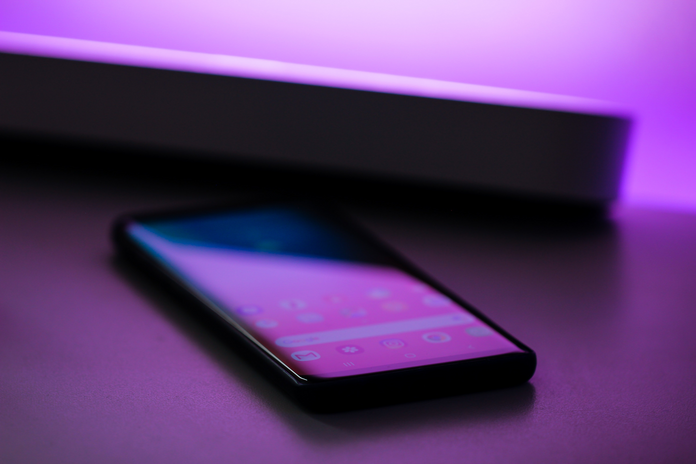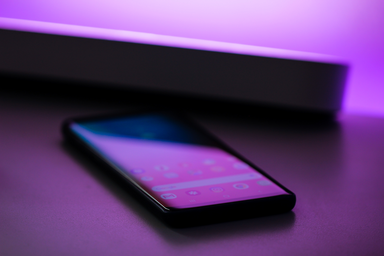Whether you’re a hard-core gamer or just a bored student in quarantine, you’ve probably heard of the online game Among Us. The mystery-based game is staged in a spaceship where players have to find the “imposter” among them who is simultaneously trying to sabotage and kill the crew. It rose in popularity after YouTubers began filming their thrilling experiences, catching the attention of millions of watchers and fellow gamers. I was among the teens and college students who wanted in on the action and downloaded the game on their mobile devices. I’m a sucker for play-the-detective-style scenarios so I knew I would immediately be drawn into Among Us, but I soon learnt that there might be more than meets the eye. The light-hearted game subtlety pulls on many current themes in our lives, specifically “cancel culture.”
As with most mystery-solving games, accusations are thrown around a lot in Among Us. Someone says they caught Blue in the act of killing Orange. Another claims they saw Brown venting (i.e. moving around locations in the spaceship through air vents), an act that can only be done by the imposter, which, thus, makes them automatically guilty. Since the game requires its players to vote to throw someone off the ship (presumably the imposter), these accusations can have significant weight: either you rightly accuse the imposter, get them voted off and gain a victory, or you vote off an innocent player and give the imposter another chance to kill the crew. Most of the time, accusations are followed by no further discussion and, once they’re out there, players don’t hesitate to follow the accuser’s lead, voting off the accused without letting them defend themselves.
Sound familiar? When you think about it, we tend to adopt the same attitudes when it comes to dealing with the yearly “Dramageddon” on Twitter, for example. “Cancel culture” has become a prominent aspect of internet culture and you generally can’t go a day on Twitter without someone being #cancelled and subsequently marginalized from the online community. Don’t get me wrong, this movement was probably started with the best intentions to make a call for responsibility from online figureheads that have great influence over millions of people on their platforms. Influencers and major celebrities should be held accountable for their actions, especially when they are broadcasted to their younger and more impressionable audiences. However, the internet now is far from a safe and welcoming environment. Everything has become so black-and-white. You could follow and watch a YouTuber for years, but bash them online once you find out about those questionably racial tweets they posted ten years ago. Their mistake (whether real or not) becomes highlighted across social media and the internet quickly reaches its verdict: they are #cancelled. Inevitably, it becomes a case of follow the leader and everyone chimes in with their disapproval. Suddenly nothing appears redeemable about them, no matter how they may try to defend themselves. We write people off as brusquely as if they were IRL “imposters.”
You may ask, what’s the big deal? We have good reason for cancelling them, and sometimes it’s even fun to see them futilely fight for their reputation. As insane as it may sound, we tend to derive a messed-up feeling of obscure pleasure or high from influencers’ downfalls (schadenfreude for those who know their SAT words). We get excited about the newest “tea” out there and the possibility of cancelling someone, so we wait until some anonymous account comes along to expose their alleged wrongdoings. Afterwards, it’s only minutes before we launch an internet tirade against them and demand their withdrawal from the community. Influencers have to learn somehow, right?

The problem is that they aren’t given a chance to learn. Cancelling someone these days is like denying someone the right to be human, i.e. the chance to make mistakes. People aren’t given an opportunity to learn from these mistakes, but they become endlessly labelled by them. What if everyone were reduced to the worst mistake they ever made? I don’t think that many people could redeem themselves, myself included, but this is what the world is slowly turning into. What’s worse is that sometimes these mistakes aren’t true, just a product of empty accusations. In the same way that imposters accuse players of being “sus” (suspicious) in the hopes of winning the game, fellow influencers often use false accusations in order to get ahead in the game of social media fame. (I’m just going to say it: James Charles deserved better.) Even so, people are mercilessly tormented online by thirsty “tea”-seekers that have nothing better to do. Harsh as it may sound, we need to recognize our behavior for what it is: wrong and dehumanizing. If I get frustrated enough when I’m falsely accused of being the “imposter” in Among Us, I cannot imagine the toll it must take on influencers when it happens to them in real life. They’re constantly being torn by the simultaneous expectation of being role models and the reality that they aren’t perfect. Ultimately, something’s got to give. They shouldn’t be punished for their mistake, but rather given the opportunity to grow and recognize how to be better versions of themselves.
I know what you’re thinking: Among Us is not that deep. And I agree, this might be a writer reading too much into a video game. However, sometimes it pays off to dig a little deeper and see what we can find out about ourselves. Perhaps this will encourage us to stop trying to find the “imposter” among us, and do better as a society.



